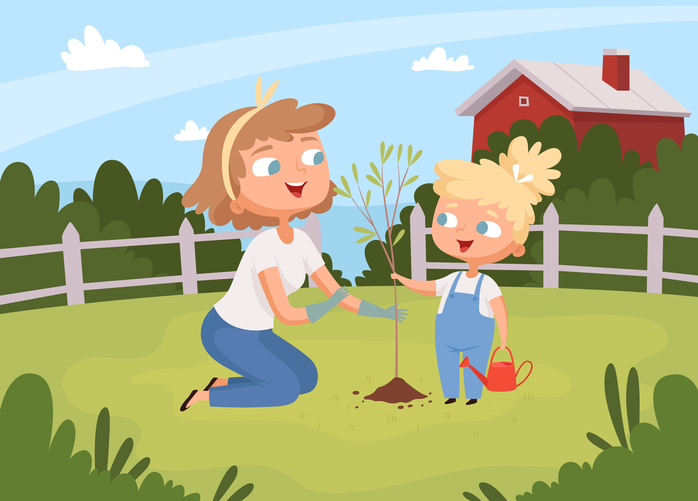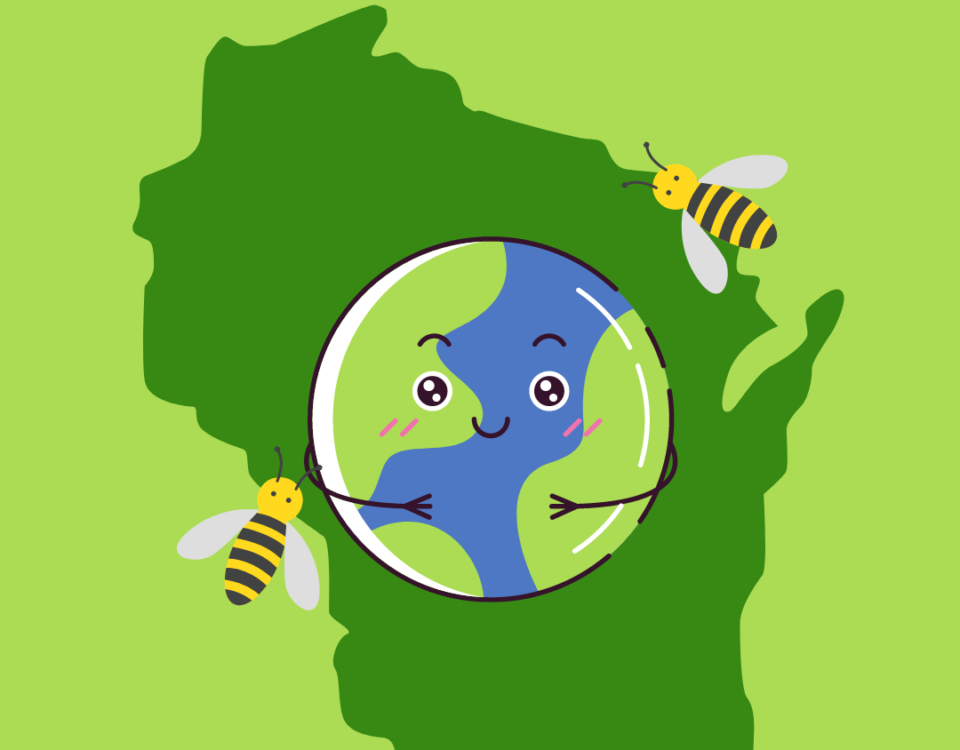- All-In-One Beekeeping for the Bees
- +1-608-728-8233
- info@beepods.com
The Connection We Have With Bees
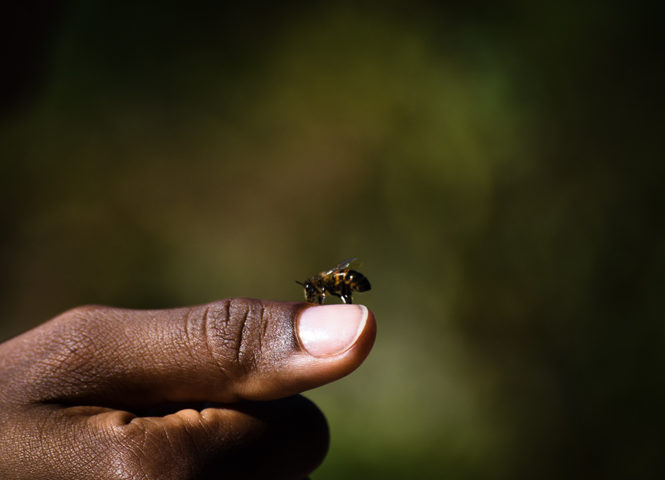
Humans and honey bees. It’s a tale as old as time, or 9,000 years old anyway. Throughout these thousands of years, honey bees have provided humans with endless wonderment through food, medicine and lore.
Fast forward to today, and bees are still fascinating us beyond belief. If we dig deep enough, we find that we have bees to thank for our survival over the years and as we navigate the unknown waters of the future. From divine wisdom to health miracles, the bond we have with bees is tied to how closely linked they are to our survival. While that bond has changed, it still remains unbreakable.
Bee Lore
Ancient cultures believed that bees were of divine nature. In Greek mythology, the bees fed Zeus while he hid in a cave from his father, Kronos. Once Zeus rose to power and defeated his father, he rewarded the bees by making them bright, colorful, and strong. Honey eventually became known as the nectar of the gods, or Ambrosia. Muses were also said to have sent bees to place honey on the lips of the mortals, giving them the gift of song.
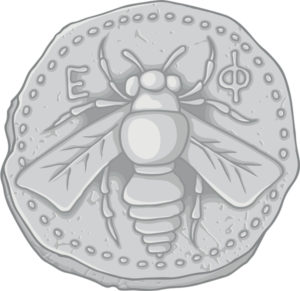 In Ancient Egypt, Pharaohs were entombed with jars of honey so they would have something to eat in the afterlife. In Europe, honey bees were used in house sigils and crests.
In Ancient Egypt, Pharaohs were entombed with jars of honey so they would have something to eat in the afterlife. In Europe, honey bees were used in house sigils and crests.
It was also believed that bees could carry messages between the world of the living and the dead. In England, beekeepers practiced “Telling the Bees.” Telling the bees required beekeepers to notify the colony if any major changes in the family had happened.
For instance, if the main beekeeper passed away, the family would have to drape the hive in a black veil, sometimes knock three times on the hive, and tell the bees that their master has passed. In the event that the bees weren’t told of their masters passing, the colony would up and leave the hive behind. If a bee colony flew off, it was often bad news for the family.
It’s through this lore that we’ve learned to respect and cherish bees. We’ve seen the wonderful things they create, and we give thanks to them for that. We also notice how, even though we speak different languages, we have found a way to communicate and connect with one another.
Bee Healthy
Honey bees can improve our health both physically and mentally. Ancient Egyptians used honey to treat wounds and burns. Honey pulls water out of wounds and burns and helps prevent bacteria from growing and causing infections. Honey is still used to treat wounds and burns to this day, though it’s a lot different than it was thousands of years ago. This honey has been sterilized and isn’t for consumption.
 While honey is commonly used to also treat colds and sore throats, another health benefit from working with honey bees is mental wellness. From teenage beekeepers in Louisville, KY to war veterans in VA hospitals, beekeeping can be good for the brain.
While honey is commonly used to also treat colds and sore throats, another health benefit from working with honey bees is mental wellness. From teenage beekeepers in Louisville, KY to war veterans in VA hospitals, beekeeping can be good for the brain.
There isn’t a clear indication as to why keeping bees is great for your mental health. Some say it has to do with keeping your breathing calm and even as you work with your hive. Always stay calm around your bees… they can smell fear.
Others think the bees’ buzzing helps your mind relax because it has the effect of a sound machine. Working with bees also helps bring you outside, in the fresh air, and away from the negativity of social media.
Ancient beekeepers taught us how to treat external wounds with honey. Now, we have developed ways in which honey bees can benefit our mental health as well. What will honey bees do for us next?
Bee Hearty
To answer the question above, bees are essential to our food supply. Maybe not 100% of it, but at least one in every three bites. Without bees, we wouldn’t have a lot of the food we use to feed our livestock, nor some of the trees to build our homes and give us fresh air. See the issue here? Bees have been helping us survive for generations, but we haven’t always been as kind to them.
With commercial farming, honey bee hives can be shipped all over the country to pollinate crops. This leads to a lot of unnecessary stress for bees as they’re forced to live in a mono-culture, meaning there is only one food source for the bees. Just like humans, bees need a variety of foods to eat to stay healthy!
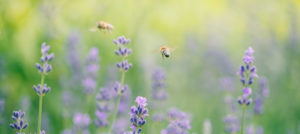 Luckily, the idea of saving the bees has become much more popular since scientists discovered that the pollinator population had dropped due to deforestation, commercial farming and pesticide use.
Luckily, the idea of saving the bees has become much more popular since scientists discovered that the pollinator population had dropped due to deforestation, commercial farming and pesticide use.
We know how important these pollinators are to us. We recognize all the benefits they bring us, so we stepped up in numerous ways.
Many cities, big or small, now have pollinator gardens for urban beekeepers. With that, people in rural areas are choosing to plant a variety of wildflowers to bring a large selection of pollen and nectar to the neighborhood pollinators.
Joining in on the wildflower gardens are many commercial farms, who see both the economic and environmental impacts bees and other pollinators have on the world around us. There are lots of ways you can help, too! When you sign up for a Beepods Lab membership, you’ll gain access to training courses and videos on how you can make your yard more pollinator friendly!
Conclusion
We’ve always had a strong connection with bees. They bring so much to our daily lives, it’s no wonder we are fascinated with them. It’s incredible that something so tiny can have such a major impact on our world and on us. While the connection we have with bees has changed, still to this day, we know that pollinators – especially bees – are an important and vital part of our lives.
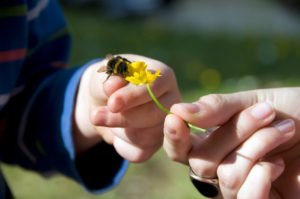
Monica Cull
Latest posts by Monica Cull (see all)
- How To Keep Your Bees Calm During An Inspection - June 30, 2021
- Pollinator Week: How COVID-19 And Modern Technology Have Impacted Bees - June 23, 2021
- Bee-Themed Activities You Can Do With Your Kids This Summer - June 17, 2021


